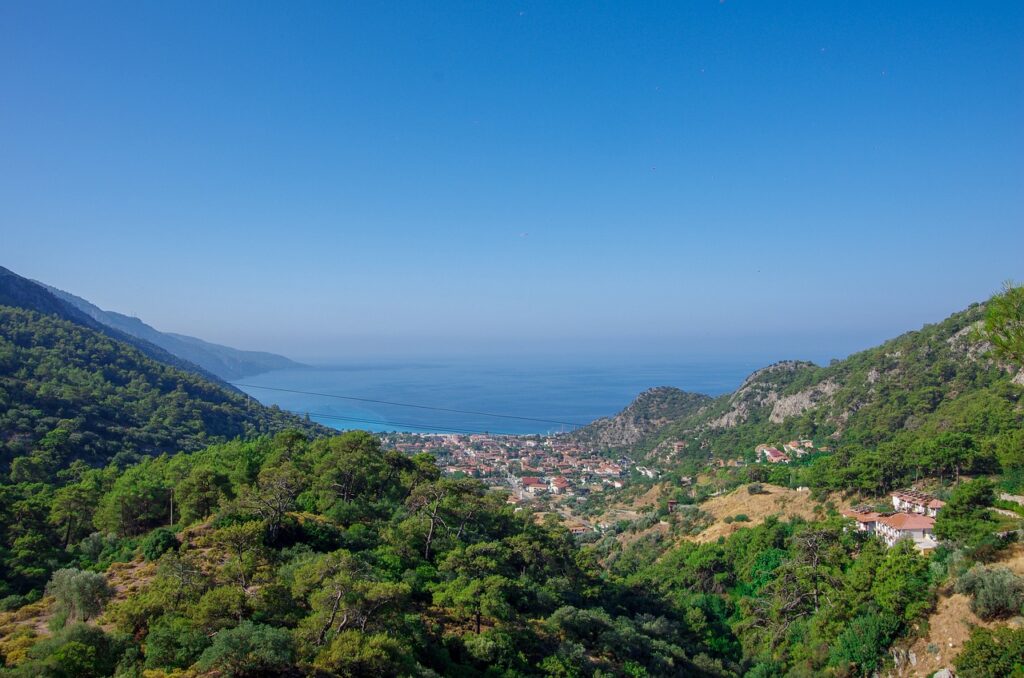Table of Contents
ToggleVisiting Turkey: A Comprehensive Guide to the Best Places to See and Things to Do
Introduction
Visiting Turkey is an experience that you will always remember. Turkey is a country that is rich in culture, history, and natural beauty. From the bustling city of Istanbul to the serene beaches of Antalya, there is something for everyone in Turkey. Whether you are a history buff, a foodie, or an adventure seeker, Turkey has plenty to offer.
Planning Your Trip to Turkey is the first step to having a successful and enjoyable visit. Researching the country’s customs, laws, and traditions is essential before you go. Travel experts recommend that you read articles and guidebooks to get a better understanding of what to expect when traveling to Turkey. This will help you make informed decisions about where to go, what to see, and how to behave there. With proper planning, your trip to Turkey will be a memorable and enjoyable experience.
Planning Your Trip
When planning your trip to Turkey, there are several things you need to consider to ensure a smooth and enjoyable experience. This section will cover the best time to visit, travel documentation, accommodation options, and transportation overview.
Best Time to Visit
The best time to visit Turkey is spring (April to May) and fall (September to November) when the weather is mild and the crowds are smaller. During the summer months (June to August), the temperatures can be very hot, and tourist destinations can be crowded. Winter (December to March) is the low season, and many tourist attractions may be closed or have limited hours.
Travel Documentation
You will need a valid passport for at least six months from your entry date to enter Turkey. Some nationalities may also require a visa, which can be obtained online or on arrival. It is recommended that you check the visa requirements before your trip.
Accommodation Options
Turkey offers many accommodation options, including hotels, hostels, guesthouses, and apartments. Istanbul has various accommodation options, from budget-friendly hostels to luxury hotels. Many all-inclusive resorts and holiday villas exist in other tourist destinations, such as Antalya and Bodrum. Booking your accommodation in advance, especially during peak season, is recommended.
Transportation Overview
Turkey has an extensive transportation network, including buses, trains, and domestic flights. The metro system in Istanbul is efficient and affordable, making it easy to get around the city. Taxis and Uber are also available, but agreeing on a price before getting in is recommended. Traffic in Istanbul can be heavy, especially during rush hour.
When traveling in Turkey, it is recommended to carry cash, as some establishments may not accept credit cards. The local currency is the Turkish Lira, which is widely available at exchange offices and ATMs. Tap water in Turkey is generally safe to drink, but it is recommended to buy bottled water. You can also purchase a local SIM card to stay connected during your trip.
Overall, Turkey is a safe and welcoming destination with much to offer. By following these travel tips, you can ensure a smooth and enjoyable trip to this fascinating country.
Destinations and Attractions
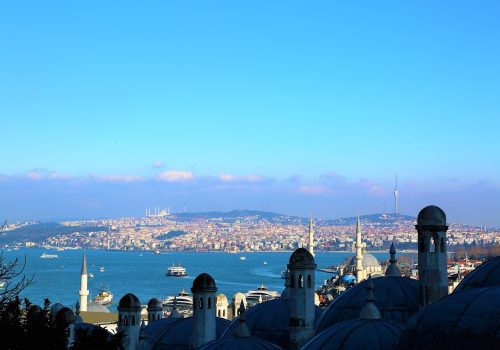
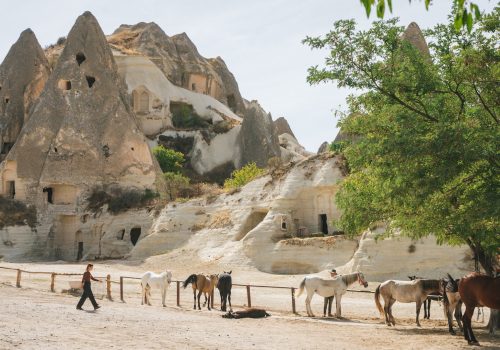

You’ll find many destinations and attractions if you plan a trip to Turkey. Here are some of the highlights to help you plan your itinerary.
Istanbul Highlights
Every trip to Turkey is complete with a visit to Istanbul, the country’s cultural and economic center. Istanbul is home to many of Turkey’s most famous attractions, including the Hagia Sophia, the Blue Mosque, and Topkapi Palace. These historic landmarks are reminders of Istanbul’s rich Ottoman and Byzantine past. You can spend days exploring the old town, wandering through ancient ruins, and admiring the stunning architecture.
Cappadocia’s Fairy Chimneys
Cappadocia is a unique region in central Turkey known for its otherworldly landscapes and fairy chimneys. These tall, cone-shaped rock formations were formed by volcanic eruptions and erosion over millions of years. Today, they are a popular tourist attraction, and you can explore them on foot, by bike, or even by hot air balloon.
Ephesus and Ancient Sites
Ephesus is one of Turkey’s most famous ancient cities, known for its well-preserved Roman ruins. The city was once a major center of trade and commerce, and you can still see the remains of its grand buildings, including the Library of Celsus and the Great Theater. Other ancient sites worth visiting include Ani, Bodrum, and the Lycian tombs in Fethiye.
Antalya and the Mediterranean
Antalya is a popular destination on Turkey’s Mediterranean coast, known for its beautiful beaches, turquoise waters, and ancient ruins. The city’s old town is a maze of narrow streets and historic buildings, while the modern side is home to luxury resorts and lively nightlife. Other attractions in the region include the ancient city of Side and the stunning Pamukkale hot springs.
Aegean Delights
The Aegean coast is another popular destination in Turkey, known for its beautiful beaches, clear waters, and charming seaside towns. Places like Sanliurfa and Patara are great for soaking up the sun, while the ancient city of Pergamum is a must-see for history buffs.
Black Sea Region’s Charm
The Black Sea region of Turkey is a lesser-known destination, but it’s worth a visit. The region is known for its lush green landscapes, charming villages, and fresh seafood. Places like Trabzon and Rize are great for exploring the local culture and cuisine.
Southeastern Wonders
Southeastern Turkey is home to some of the country’s most stunning natural wonders, including the Turquoise Coast and Mount Nemrut. The region is also home to many historic sites, such as the ancient city of Aspendos and the Mosque of Rustem Pasha.
Turkey has a rich history, stunning landscapes, and vibrant culture. With so many destinations and attractions, you will surely find something that suits your interests and travel style.

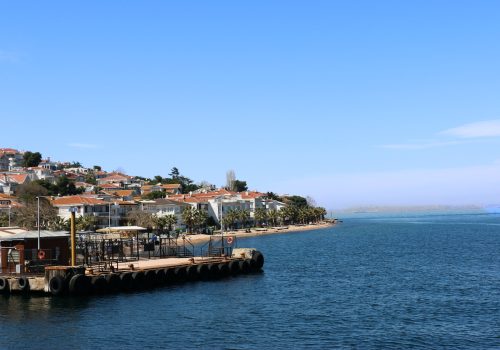
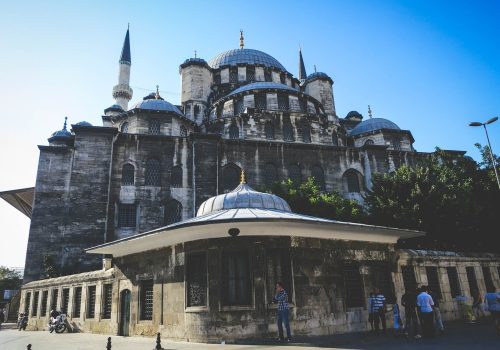
Cultural Insights
If you’re planning a trip to Turkey, it’s essential to understand the country’s rich cultural heritage. Here are some insights to help you navigate Turkish culture with ease.
Turkish Cuisine
Turkish cuisine is famous for its rich flavors and variety of dishes. A traditional Turkish breakfast often includes bread, cheese, olives, and tea. Turkish tea, or çay, is a staple of Turkish culture and is often served throughout the day. Turkish coffee is also famous for its intense flavor and thick texture.
Regarding food, Turkish cuisine is heavily influenced by the Ottoman Empire and Byzantine culture. Some popular dishes include kebabs, baklava, and dolma. Turkish cuisine also features a variety of vegetarian and vegan options, such as stuffed eggplant and lentil soup.
Local Traditions and Etiquette
Hospitality is an integral part of Turkish culture. It’s common for hosts to offer guests tea or coffee upon arrival and for guests to remove their shoes before entering a home. When visiting a mosque, it’s essential to dress modestly and remove your shoes before entering.
In Turkish culture, respecting elders and authority figures is important. When greeting someone, it’s customary to shake hands and say “Merhaba” or “Selamün Aleyküm.” When leaving a social gathering, it’s common to say “Güle güle” or “Hoşça kalın.”
Historical Legacy
Turkey has a rich history that spans thousands of years. The country was once the seat of the Ottoman Empire, and its historical legacy can be seen in the architecture and culture throughout the country. Some must-see historical sites include the Hagia Sophia, Topkapi Palace, and the Blue Mosque.
In addition to its Ottoman heritage, Turkey also has a rich Byzantine history. The city of Istanbul was once known as Constantinople and was the capital of the Byzantine Empire. Today, visitors can explore the city’s rich history by visiting landmarks such as the Basilica Cistern and the Chora Church.
Overall, Turkey is a country with a deep cultural heritage and a rich history. By understanding Turkish cuisine, local traditions and etiquette, and the country’s historical legacy, you can fully immerse yourself in Turkish culture and make the most of your trip.

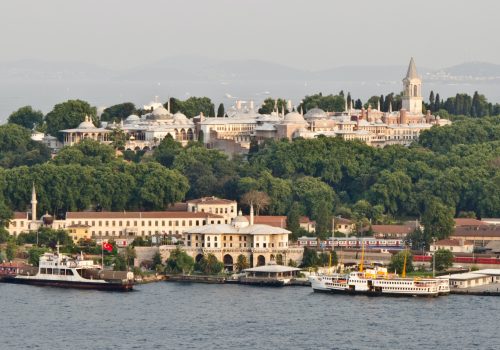
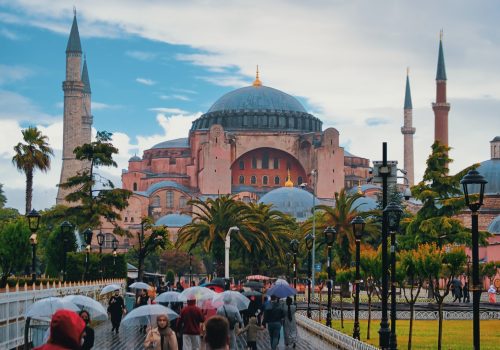
Outdoor Adventures
Turkey is a land of natural beauty and stunning landscapes, offering travelers various outdoor adventures. Whether you’re looking for a relaxing beach escape, a challenging hiking trail, or an adrenaline-pumping adventure sport, Turkey has something for everyone.
Beach Escapes
Turkey has a long coastline along the Mediterranean and Aegean seas, dotted with beautiful beach resorts. The white sandy beaches and crystal-clear waters are perfect for swimming, sunbathing, and water sports. Some of Turkey’s most popular beach destinations include Antalya, Bodrum, and Marmaris.
Hiking and Landscapes
Turkey’s diverse landscapes offer some of the most scenic hiking trails in the world. From Cappadocia’s rugged mountains to Pamukkale’s white terraces, there are plenty of opportunities to explore Turkey’s natural beauty. One of the most popular hiking trails is the Lycian Way, a 540-kilometer trail that winds along the Mediterranean coast.
Adventure Sports
Turkey offers plenty of adventure sports if you’re looking for an adrenaline rush. Paragliding over Oludeniz, white water rafting in Antalya’s Köprülü Kanyon, and rock climbing in Geyikbayırı are just a few of the options available. Adventure sports enthusiasts can also try kayaking, canyoneering, and horseback riding.
In conclusion, Turkey is a paradise for outdoor enthusiasts, offering various activities for all experience levels. Whether looking for a relaxing beach escape or an adrenaline-pumping adventure sport, Turkey has something for everyone.
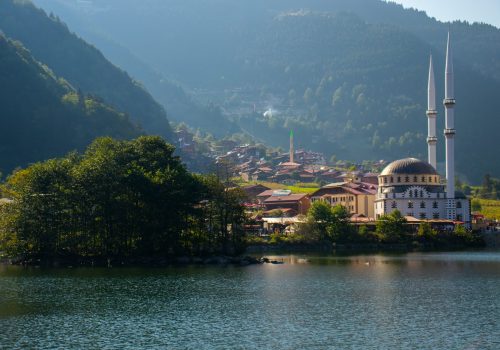
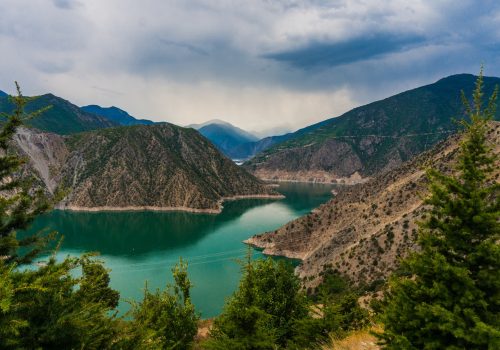

Practical Information
When visiting Turkey, it is important to be prepared with practical information to ensure a smooth and enjoyable trip. The following subsections will cover language and communication, safety and health, shopping and haggling, and staying connected.
Language and Communication
The official language of Turkey is Turkish, but English is widely spoken in tourist areas and major cities. However, it is always helpful to learn a few basic Turkish phrases to show respect for the local culture and make communication easier. Some common phrases include “merhaba” for hello, “teşekkür ederim” for thank you, and “lütfen” for please. You can also download translation apps on your phone to help with communication.
Safety and Health
Turkey is a relatively safe country for tourists, but it is always essential to take precautions. Be aware of your surroundings, especially in crowded areas, and keep your belongings close to you. In an emergency, dial 112 for medical assistance and 155 for police. Purchasing travel insurance before your trip is also recommended to cover any unexpected medical expenses.
Shopping and Haggling
Shopping is a popular activity in Turkey, especially in markets and bazaars. It is expected to haggle over prices when shopping, so be prepared to negotiate. Start by offering a lower price than initially quoted, and work up. Remember to be respectful and polite during the haggling process.
Staying Connected
To stay connected during your trip to Turkey, you can purchase a local SIM card or Wi-Fi at cafes and hotels. Many public places also offer free Wi-Fi. It is also essential to be aware of any potential terrorist threats and to follow local news and government advisories.
By following these practical tips, you can have a safe and enjoyable trip to Turkey.
Experiencing Turkey
Turkish Daily Life
Turkey has a rich history and culture, and you can experience that culture in the daily life of its people. One of the best ways to experience Turkish daily life is by visiting a local market. The markets are full of fresh produce, spices, and other goods, and they are a great place to meet locals and learn about their culture.
Another way to experience Turkish daily life is by visiting a Turkish house. Turkish houses are designed to be welcoming and comfortable, and they are a great place to learn about Turkish culture and traditions.
Nightlife and Entertainment
Turkey is known for its vibrant nightlife and entertainment scene. There are many bars, clubs, and restaurants where you can enjoy live music, dancing, and other entertainment. Some of Turkey’s best nightlife spots include Marmaris, known for its beach clubs and nightclubs, and Istanbul, which has a vibrant nightlife scene that caters to all tastes.
Festivals and Events
Turkey is home to many festivals and events throughout the year, and attending one of these events is a great way to experience Turkish culture and traditions. One of the most important events in Turkey is the celebration of Mustafa Kemal Atatürk’s birthday, which takes place on November 10th. Another popular event is the Menemen Festival, which celebrates the traditional Turkish dish of the same name.
When you visit Turkey, you will also have the opportunity to see the remains of the empires that once ruled the country. The Ottoman and Byzantine empires both left their mark on Turkey, and you can see their influence on the architecture and culture of the country.
Finally, it’s worth noting that Turkey has a large population of street cats and dogs. While these animals are generally friendly and harmless, it’s essential to be aware of them when you’re out and about. If you need to take a taxi in Turkey, use a licensed Turkish taxi to ensure your safety
Conclusion
In conclusion, Turkey is a unique destination that offers a rich tapestry of history, culture, and natural wonders. With its stunning landscapes, ancient wonders, and modern delights, Turkey is a must-visit destination for any traveler.
When visiting Turkey, it is essential to remember some travel tips to make your trip smooth and enjoyable. For example, it is advisable to carry cash, as not all places accept credit cards, and to dress modestly when visiting religious sites.
Turkey is home to countless attractions that cater to all types of travelers. From the bustling city of Istanbul to the serene beaches of Antalya, there is something for everyone. Enjoy visiting the iconic Hagia Sophia, the stunning Cappadocia region, and the beautiful Pamukkale hot springs.
Safety is always a top priority when traveling, and Turkey is no exception. It is essential to be aware of your surroundings and avoid unsafe areas. However, with the proper precautions, Turkey is generally a safe tourist destination.
Finally, Turkey’s culture is unique and diverse, with influences from the East and the West. Be sure to try some delicious Turkish cuisine, such as kebabs, baklava, and Turkish delight, and immerse yourself in the local culture by visiting markets, attending festivals, and interacting with locals.
Overall, Turkey is a beautiful vacation destination that offers many experiences for all types of travelers. Whether you are interested in history, culture, or natural beauty, Turkey has it all.
Frequently Asked Questions
What are the visa requirements for U.S. citizens visiting Turkey?
If you are a U.S. citizen, you must obtain an e-visa before traveling to Turkey. You can easily apply for an e-visa online and receive it within minutes. The e-visa is valid for multiple entries and up to 90 days within 180 days. Please note that your passport must be valid for at least six months beyond your intended stay in Turkey.
What is the recommended itinerary for a first-time visitor to Turkey?
Turkey has so much to offer that planning an itinerary for your first visit can be overwhelming. However, some must-see destinations include Istanbul, Cappadocia, Ephesus, and Pamukkale. Istanbul is a vibrant city that blends the old and the new, while Cappadocia is famous for its unique rock formations and hot air balloon rides. Ephesus is an ancient city that offers a glimpse into Turkey’s rich history, and Pamukkale is home to stunning natural hot springs.
How can tourists stay safe while traveling in Turkey?
Turkey is a safe country for tourists, but it is always essential to take precautions. Avoid walking alone at night, especially in remote areas. Be aware of your surroundings and monitor your belongings in crowded areas. Always carrying a photocopy of your passport and important documents is also a good idea.
Are there any current travel restrictions for tourists wishing to enter Turkey?
As of January 2024, there are no significant travel restrictions for tourists wishing to enter Turkey. However, it is always a good idea to check with your embassy or consulate before traveling to Turkey to ensure that there are no sudden changes in travel regulations.
What is the best season to plan a trip to Turkey?
The best time to visit Turkey depends on your preferences and the activities you plan to do. Spring (April to May) and fall (September to November) are generally the best times to visit, as the weather is mild and there are fewer crowds. Summers can be hot and crowded, especially in coastal areas. Winters can be cold and rainy, but it is a great time to visit ski resorts.
How accommodating is Turkey towards international tourists?
Turkey is a welcoming and accommodating country for international tourists. English is widely spoken in tourist areas, and the locals are friendly and helpful. However, learning a few basic Turkish phrases is always a good idea to help you communicate with locals and show respect for their culture.
Helpful Travel Planning Tips
Flights:
Search and book with ORBITZ. They search across 100s of travel sites to compare prices. If you are not ready to book? Set alerts for when prices drop.
Accommodations:
To book a hotel, check Hotels.com
Check here for Hostels
Travel Insurance:
I recommend getting travel insurance from Travelex Insurance to protect your purchase as soon as you book.
Activities:
For tickets, tours, and day trips, check with GetYourGuide.
Restaurants:
Disclosure: Please note that some links on this website are affiliate links. At no cost to you, I receive a commission if you make a purchase. I only recommend companies that I research and would use.
